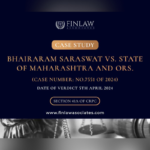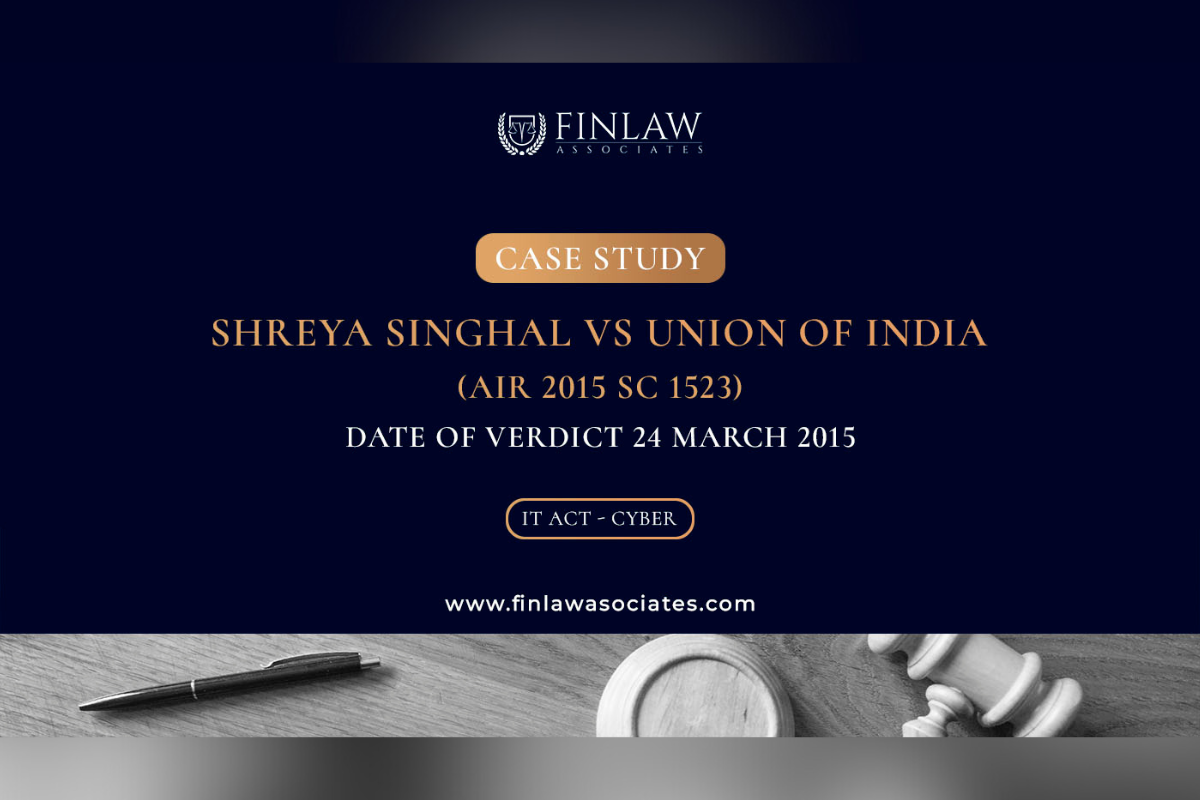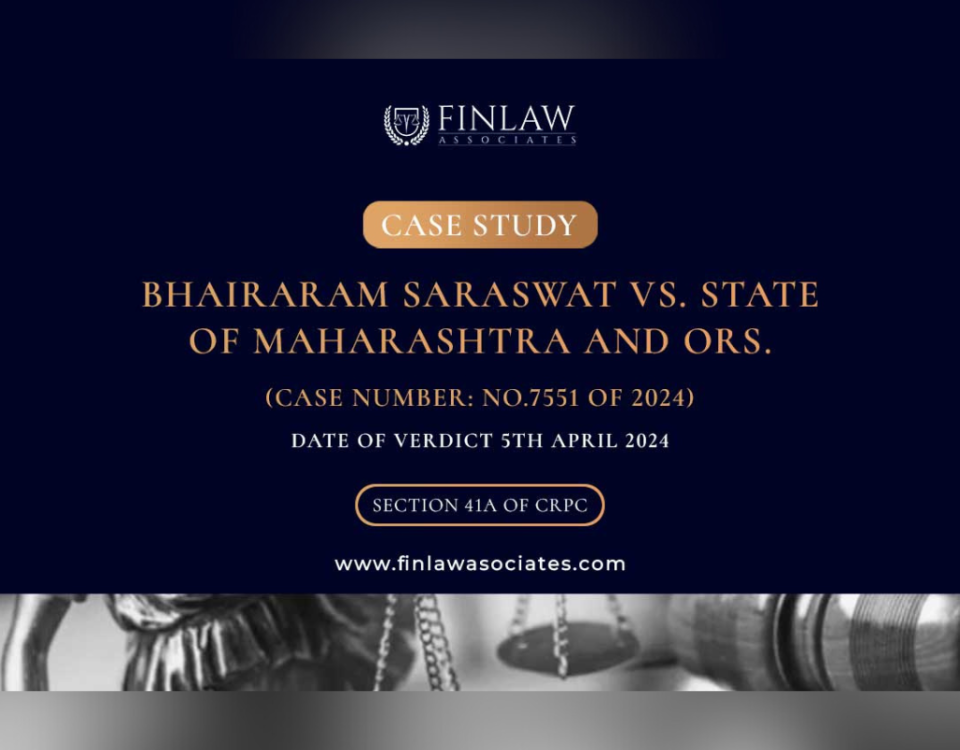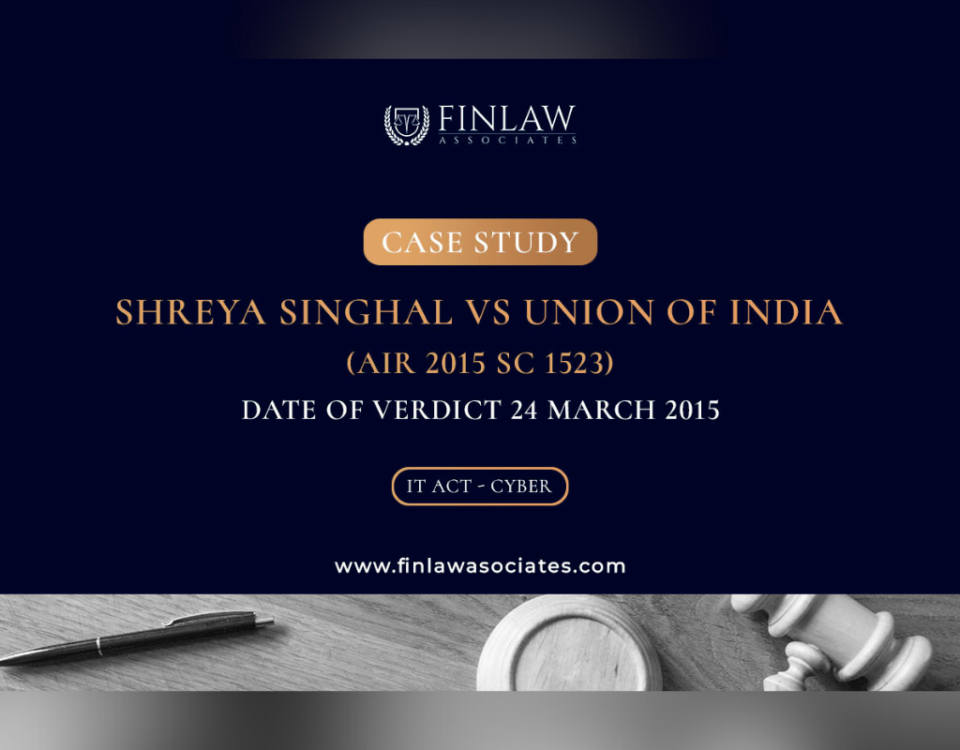
Cybercrime: Outsmart Scammers and Protect Yourself From Hacking & Phishing
March 21, 2024
Case Study: Bhairaram Saraswat Vs. State of Maharashtra and Ors
May 4, 2024
Date of Verdict: 24th March 2015
Case Section: Section 66 A of the Information Technology Act 2000
Facts of the case (Section 66A of the IT Act)
The two women were arrested under Section 66A of the IT Act, alleged to have posted objectionable comments on Facebook regarding the complete shutdown of Mumbai after the demise of a political leader. Section 66A of the IT Act states that whoever by using a computer resource or communication provides information that is offensive, false, or causes inconvenience, danger, annoyance, insult, hatred, injury, or ill will, be punished with imprisonment. The women filed a petition challenging the constitutionality of Section 66A of the IT Act on the grounds that it is violative of the freedom of speech and expression.
Issue
The validity of Section 66 A of the Information Technology Act 2000 was challenged before the Supreme Court.
Decision
While pronouncing the decision, the court discussed three concepts and they were discussion, advocacy, and incitement. The court was of the view that mere discussion or even advocacy of a cause, irrespective of how unpopular the same is at the heart of the freedom of speech and expression. The court held that section 66A is ambiguous, and is violative of the right to freedom of speech and it takes within its range the speech that is innocent as well. It removed an arbitrary provision from IT Act, 2000 and upheld citizens’ fundamental right to free speech in India. It was of the view that even though section 66A is struck down, provisions in the Indian Penal Code, 1860 will continue to be applicable prohibiting racist speech, any speech that outrages the modesty of a woman, or speech aimed at promoting enmity, abusive language, criminal intimidation, racism, etc.
The Supreme Court’s views concerning two other Sections of the IT Act – Section 69A (along with Blocking Rules) and Section 79 and Intermediaries Guidelines 2011.
Section 69A and Blocking Rules, 2009
Section 69A and the Blocking Rules 2009 empowered the central government to issue blocking orders to intermediaries for certain categories of illegal content. This process occurred in two stages. Initially, TDRs were issued to intermediaries, which could contest their validity before a government committee constituted to hear objections. After this pre-decisional hearing, the committee made its final recommendations pursuant to which the central government issued blocking orders to intermediaries. Finally, intermediaries retained the right to challenge the legality of such Blocking Orders in court.
Challenge in Shreya Singhal
Section 69A and the Blocking Rules 2009 were challenged as unconstitutional on various grounds. Firstly, petitioners contended that the user who uploaded the content targeted for takedown is not given any notice or hearing regarding the same. The notice followed by a pre-decisional hearing to the user [not just the intermediary] is essential they argued. Secondly, they posited that strong judicial oversight of blocking orders must be incorporated into the law as a necessary safeguard against abuse. They cited the example of Sections 95 and 96 of the Code of Criminal Procedure, 1973 (“CrPC”), which provide for a court hearing to anyone wishing to challenge a book/newspaper ban. Thirdly, petitioners argued that the secrecy provision contained in Rule 16 of the Blocking Rules was unconstitutional; they averred that blocking orders must be in the public domain and backed by sound reasons.
Court Got Right
The court rightly said that a pre-decisional hearing is to be given to the user as well as the intermediary by the government. The court also rightly concluded that “reasons have to be recorded in writing in such blocking order” so that users who wish to can proceed to challenge such orders in court.
Court Missed Out
The court didn’t adequately resolve concerns raised about the secrecy provision of the Blocking Rules. While the court did empower aggrieved users to challenge blocking orders in court, it did not explain how they could go about doing so if the blocking orders remained secret. Indeed, the petitioners turned out to be quite prescient in their concerns about secrecy. Many users have sought to access blocking orders since 2015, but the Ministry of Telecommunication has opposed them on the grounds that such orders remain secret.
Remedy Gaps Going Forward
The Anuradha Bhasin judgment stressed the importance of publishing internet shutdown orders in the interest of transparency. Applying the same principle, courts can lift the secrecy restriction on Section 69A blocking orders [other than emergency orders] so that going forward such orders may be challenged by users.
Section 79 and Intermediaries Guidelines 2011
Background of Provisions [before Shreya Singhal]
These provisions empowered the central government, state governments, courts and also private individuals to send Government Take Down Request to intermediaries regarding the presence of illegal content on their platforms. They also compelled intermediaries to remove illegal content on their platforms if they acquired knowledge about such content on their own.
The challenge in Shreya Singhal
First, they asserted that intermediaries lack the capacity to judge the legality of content based on private takedown notices. Petitioners also alleged that Rule 3(2) of the Intermediaries Guidelines contains vague terms that leave users in the dark about their scope and meaning. Finally, they contended that the use of the term “unlawful acts” in Section 79(3) suggests that intermediaries might have to remove content that goes “beyond the specified subjects delineated in Article 19(2) of the constitution.” This is in contradiction of settled law which holds that speech restrictions can only be imposed if they pertain to one of the eight subject matters contained in Article 19(2).
What the Court Got Right
The court was also right to state that the content removal obligations of intermediaries under Section 79(3) are restricted to Article 19(2) subjects.
Where the Court Missed Out
With respect, the court failed to assert that the terms in Rule 3(2) are completely “open-ended…and vague.” And so, as in the case of Section 66A, a user has no idea whether their speech falls outside the ambit of the terms of Rule 3(2) or not.
What Can be Done Going Forward
Courts can direct the government to clarify the meaning of the terms contained in Rule 3(1)(b) of the New Intermediaries Guidelines to avoid excessive ambiguity and arbitrariness.
It must be remembered that apart from clear-cut cases of illegal speech such as Child Sexual Abuse Material for which POCSO already imposes separate obligations on intermediaries, it is impossible to ascertain the legality of speech in the absence of proper context which filtering tools don’t provide. This context can only be understood when robot procedural safeguards such as the ones described in Shreya Singhal are in place.


